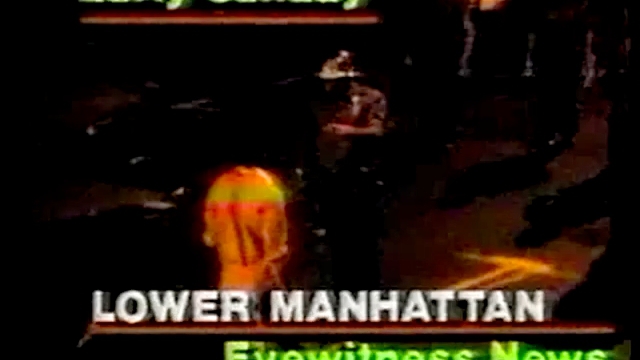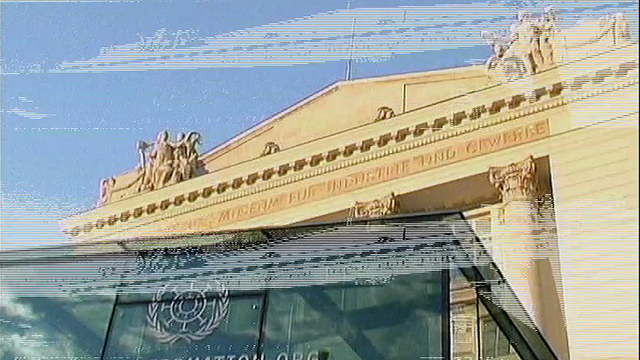Search results for 'media'
Video Vortext Reader II
Moving Images Beyond YouTube. Editors: Geert Lovink and Rachel Somers Miles. Publisher: Institute of Network Cultures, Amsterdam 2011
make world paper 3
Two years after 911 the global cup looks both half full and half empty. It's hard to be optimistic, yet there are plenty of reasons for it. With the Bush-Blair war machine running out of steam, the movement of movements shifts its attention to alternatives for the WTO, Security Council and similar post-democratic bodies. In the moral desert of the Iraq War the structuration of imaginary consent through the repetitive bombardment of the image began to show severe cracks in credibility. These discrepancies within the represented result in a heightened need for action. The Iraq war didn't fool any one and both sides are still reeling a little from the shock. While maintaining their anger, people moved on from protest to a collective search for that other, possible world. What might a global democracy look like? Would it be a system with representatives and 'rights,' or rather a dynamic set of events, without higher aims?
ReadIntroduction to the N5M Zapbook
The Next Five Minutes is a conference, exhibition and tv program that wants to leave behind the rigid dichotomy between the mainstream, commercial and national tv on one hand and marginal independent tv on the other. Although these differences may still be important, N5M wants to focus on tv-makers crossing the borders of tv-making and going into the spaces that the tv-world still has to offer.
Media, Activism and Society of the Spectacle
Our ability to move into a collectively imagined future has been trapped in an ever-present now, composed of continually transmitted images. The spectacle accompanies us throughout our lives. News, propaganda, advertising, entertainment and social media present a continuous stream of imagery, projecting a constant justification for how our culture is formulated. When Guy Debord first published The Society of the Spectacle in 1967, the digital revolution was still decades away and the technological capacity to project images into every corner of our lives was far less developed than it is today. The spectacle is no longer simply all of the time; it is also everywhere. More than ever before, Debord's words apply: "Everything that was directly lived has receded into a representation."
ReadArt in the Age of Terrorism:
Dr. Steven Kurtz-the artist accused of bioterrorism in federal
court-will make his first public appearance following the dismissal of
his case
Thursday, May 29, 2008, 7PM
Eyebeam 540 W. 21st St. (btw 10th and 11th Aves.)
Free and open to the public
Julian Assange & WikiLeaks Public Defense Fund
Julian Assange's safety is in serious jeopardy. He is now threatened with imminent arrest and extradition from the United Kingdom to the United States where he faces life in prison. He and his campaign team urgently need your help. Elements in the US government are aggressively pressuring Ecuador to withdraw his asylum status - the time for action is now!
Security through InSecurity
Increase the level of paranoia.....
bombs in the metro.....bombs in Oklahoma......
bombs in the World Trade Center.....bombs in Mururoa.....
Who are the real terrorists?
Hippy Cull
from Underground, PO Box 3285, London, SW2 3NN, UK
1. Neo-hippyism is upon us: a bumper pack of seriously dumb tendenciesthat cripple processes of change. Some of these tendencies relate toideas, and some of them to action, they range from the 'political' tothe way people dress. They form the aesthetic, theoretical and materialdatabases people use to inform and develop what they are getting up to.This database needs reformatting.
Cybernetics & Entheogenics
Abstract of the lecture by Peter Lamborn Wilson
For the 'Next Five Minutes" Conference, Amsterdam, january 1996
http://new . territories / appropriation . of . medical . discourse / art . com
Nina Czegledy and Inke Arns presented the material described in the
following text during the afternoon programme at V2_Organisation
Rotterdam on Sunday, January 21st, 14.00 - 18.00 hrs.
On an imaginary journey in the territories of current medical practice
and visual art, we observe the disintegration of former boundaries and
discover the emergence of a new discourse involving new metaphors and
new mythologies. In the course of this voyage we witness the
crystallization of a process which began in the Enlightenment and today
is linked together by electronic technologies. Mediated by television,
and lately the Internet, the concepts involved here, have contributed
to the construction of a simulated reality in both medical science and
art which imprisons attention and redirects it from the subject of the
activity reproduced.
The Disappearance of Public Space on the Net
The Internet was started in the 1970's by the U.S. Defense Departmentas a communications tool and is now being bought out by I.B.M., M.C.I.and other megaCorporations. April, 1995 marked the closing of theNational Science Foundation's part of the internet, and signaled thebeginning of the end of the publicly funded computer networkinfrastructure.
Linda Herrera
Linda Herrera (PhD Columbia University, MA, American University in Cairo, BA UC Berkeley) joined the Department of Educational Policy Studies at the University of Illinois at Urbana-Champaign as Associate Professor and core staff in the Global Studies in Education MA program in January 2011. Prior to that she was a Senior Lecturer in International Development Studies (2005-2010) at the International Institute of Social Studies of Erasmus University Rotterdam where she was Convenor of the Children and Youth Studies MA specialization. Her major research interests and writing are around issues of Youth and citizenship in the Middle East and North Africa (MENA); critical ethnography of schooling; youth, employment and international development policy; democracy and education; and, more recently, youth, new media and Arab Revolution.
ReadPit Stop Manifesto
1. Internet culture will bring the US, Western Europe, and the UK closer in to mental alignment,
SWARMACHINE
Activist Media Tomorrow*
* BH: When I wrote this text five years ago, it really was not clear whether
the swarming tactics of the counter-globalization movement would get a
"second chance." But they have, and now the subtitle could be "activist
media today."
What happened at the turn of the millennium, when a myriad of recording
devices were hooked up to the Internet and the World Wide Web became an
electronic prism refracting all the colors of a single anti-capitalist
struggle? What kind of movement takes to the barricades with samba bands
and videocams, tracing an embodied map through a maze of virtual
hyperlinks and actual city streets? The organizational aesthetics of the
networked movements was called "tactical media," a concept that mixed
the quick-and-dirty appropriation of consumer electronics with the
subtle counter-cultural anthropology of Michel de Certeau. The idea was
to evoke a new kind of popular subjectivity, constitutionally "under the
radar," impossible to identify, constantly shifting with the inventions
of digital storytelling and the ruses of open-source practice. Too bad
so much of this subversive process was frozen into a single seductive
phrase.
How to Turn Your Liability into an Asset: Media, Art and Politics in Post-communist Bulgaria
The first interview was conducted during the opening of Hybrid Workspace in June 1997, the temporary media lab in the margins of the big art show Documenta X in Kassel (Germany).
ReadCHANCE 2000: Vote yourself! Just do it!
Germany 1998: 2 years before the New Millenium a new form of
Political Party came into existence: CHANCE 2000 - The Party of the
Last Chance. In the midst of an election that was one of the most
important in postfascist Germany an artist jumped into the political
arena to "make politics more aesthetic and aesthetics more political".
The film- and theatremaker and talk show host Christoph Schlingensief
started the Campagne: "VOTE YOURSELF!" In Berlin he started the project
with an "Election Circus". Together with a famous circus-family from
former East Germany and with his crew of actors and his family of
handicapped performers he founded "CHANCE 2000 - Party of the Last
Chance" in a circus tent in Berlin/ Prenzlauer Berg. The message for
the Republic was: "Vote Yourself, we know how to do it!" Every citizen
was asked to become an independent candidate for the new Bundestag.
Manuals were sent out how to become a direct candidate. And many
different people realized their chance to "prove that they exist" by
bringing their name on the ballot sheet: "Chance Meier", "Chance
Mueller", "Chance Schmidt". If you managed to collect 200 signatures of
support in your political region you were part of the game and you
could vote yourself. Why not voting somebody you know by heart, you
trust and love?
The Undisciplined and Punishment
In the past several years a lively list serve has evolved that addresses issue of incarceration and justice in the United States. Each night I log on to messages that range from desperate pleadings for someone life to cautious discussions of what the slogans should be on the posters for the next Mumia march. There are technical descriptions of prison architecture and quests for herbal cures to cell block bronchitis epidemics. It is the underside of what is one of our leading industries: locking people up.



